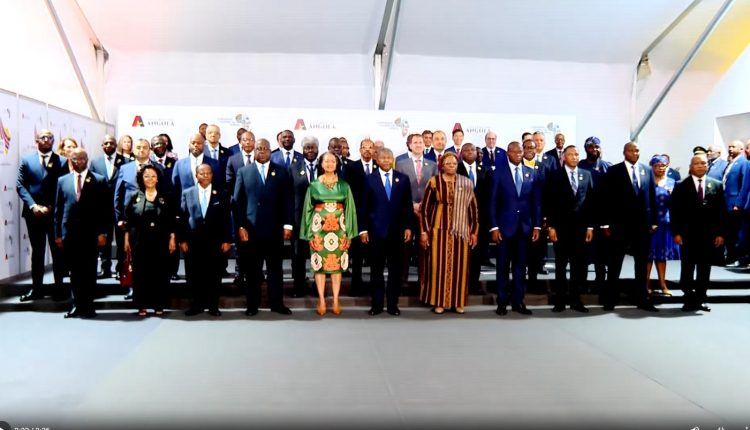Ethiopia leverages U.S.-Africa Summit to advance reform-driven economic diplomacy
Addis Ababa, June 26, 2025 (FMC) — Ethiopia has utilized the 17th U.S.-Africa Business Summit as a strategic platform to advance its economic diplomacy and attract investment aligned with the country’s homegrown reform agenda, according to the Ministry of Foreign Affairs.
Held in Luanda, Angola, the high-level summit brought together over 2,000 participants and concluded on Wednesday. Ethiopia’s delegation was led by President Taye Atske Selassie, who conducted a series of bilateral engagements aimed at strengthening partnerships and deepening economic cooperation.
Ambassador Zerihun Abebe, Director General for African Affairs at the Ministry, stated that President Taye held productive discussions with Angolan President and current African Union Chairperson João Lourenço; Senior Advisor for Africa at the U.S. Department of State, Massad Boulos; and President and CEO of the Corporate Council on Africa, Florizelle Liser.
In parallel sessions, Ethiopian Investment Holdings (EIH) CEO Brook Taye and Ethiopian Investment Commission Commissioner Zeleke Temesgen engaged with global business leaders and investors, presenting Ethiopia’s reform-driven investment priorities and sectoral policy frameworks.
According to Ambassador Zerihun, the summit provided a valuable opportunity to highlight Ethiopia’s business and investment landscape, articulate policy clarity, and contribute to shaping the future direction of U.S.-Africa commercial relations.
One of the key outcomes of Ethiopia’s participation was the signing of a memorandum of understanding between Ethiopian Investment Holdings and U.S.-based International Finance Partners. The agreement outlines a portfolio of investments exceeding 200 million USD, with a focus on expanding tourism infrastructure and developing destination projects across Ethiopia.
“This agreement is a strong signal of investor confidence and a tangible step toward enhancing Ethiopia’s tourism sector as part of our broader economic transformation,” said Ambassador Zerihun.
He added that Ethiopia’s participation reflects its growing emphasis on business diplomacy as a tool to attract foreign direct investment, create employment opportunities, and diversify export markets.
The summit also underscored a shift in U.S. engagement with Africa — moving away from traditional aid-based models toward deeper trade, investment, and private sector partnerships in line with the U.S. government’s evolving commercial diplomacy approach.
According to ENA, this edition of the summit was especially notable given the broader context of shifting U.S.-Africa engagement strategies and its potential for tangible deal-making.
It is recalled that Ethiopia hosted the 10th edition of the U.S.-Africa Business Summit.

